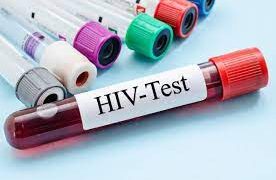Cases of sexually transmitted infections (STIs) are increasing in England, new figures show.
In 2018, there were 447,694 new diagnoses of STIs made, a 5% increase on the 422,147 in 2017.
Gonorrhoea increased the most – by 26% to 56,259 cases. There were 7,541 cases of syphilis – a 5% increase on 2017.
High-risk groups included young heterosexual people, black ethnic minorities, gay people, bisexuals and men who have sex with men.
The most commonly diagnosed STIs were:
chlamydia (218,095 cases, 49% of all new STI diagnoses)
genital warts (57,318 cases, 13%)
gonorrhoea (56,259 cases, 13%)
genital herpes (33,867 cases, 8%)
Gonorrhoea
The number of gonorrhoea cases recorded was the largest since 1978, says Public Health England. Cases have been increasing for years among both men and women, despite repeated warnings from public health doctors about the risks of unprotected sex.
Sometimes referred to as “the clap”, it is a bacterial infection passed between people through unprotected vaginal, oral or anal sex.
It is not spread by kissing, hugging, toilet seats or sharing baths or towels.
Some people have no symptoms, but can pass it on to their sexual partner.
It can be treated with antibiotics, although there have been recent reports of some cases of hard-to-treat “super gonorrhoea” that are resistant to the usual choice of drugs.
If you have any of the symptoms of gonorrhoea – a yellow or green discharge from the vagina or penis, or pain urinating – visit your doctor or a sexual health clinic to get tested.
Gonorrhoea can cause serious long-term health problems, including infertility in women.
Experts are worried that many people are not getting tested for STIs when they should be.
Part of it could be embarrassment to seek help, but cuts to services are also a concern.
Dr Olwen Williams, president of British Association for Sexual Health and HIV, said sexual health services were at breaking point.
“Recent years have unfortunately seen severe and damaging cuts to sexual health service funding, jeopardising our ability to meet these challenges at a critical time.
“The continuing escalation in gonorrhoea and syphilis diagnoses must be addressed as an urgent health priority, otherwise there is the potential for devastating consequences to the wellbeing of the wider population and the health system as a whole.”
Screening for another STI, called chlamydia, continued to decline in 2018, with just over 1.3 million young people tested.
Meanwhile, new cases of genital warts also continued to decline. Experts say it is since the introduction of the HPV vaccine – a jab offered to teenage girls (and soon boys too) and some adults in high-risk groups to protect against some strains of the infection that are also linked to cervical cancer.
source: BBC








![Drake helps a group of African kids go viral [Watch]](https://thepostghana.com/wp-content/uploads/2020/04/drake-2019-pxn-billboard-1548-1586360114-1024x677-360x180.jpg)







































